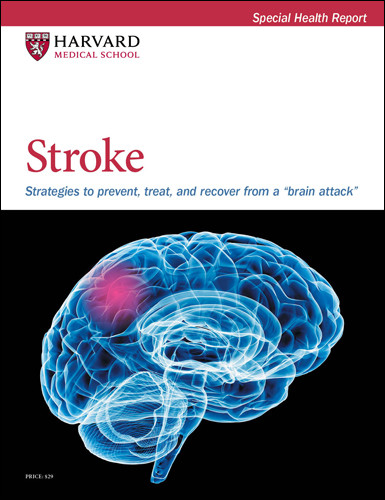Can a smart watch detect early risks for certain heart problems?
News briefs
- Reviewed by Anthony L. Komaroff, MD, Editor in Chief, Harvard Health Letter; Editorial Advisory Board Member, Harvard Health Publishing
 Smart watches can do more than just check texts and emails or track your steps and heart rate. Many of the devices measure the electrical activity of your heart, similar to an electrocardiogram (ECG) that you'd get in a doctor's office. Those tests in clinical settings measure electrical activity from different points on your chest and limbs for about 15 seconds. But smart watches measure activity from just one spot (your wrist). Is that enough to detect heart problems? Possibly, suggests an analysis published online Feb. 3, 2023, by the European Heart Journal: Digital Health. Scientists asked 83,000 healthy people (ages 50 to 70) to undergo one-lead, 15-second ECGs that mimicked a smart watch ECG, and then followed their health for up to 11 years. After analyzing the recordings, scientists found that people whose ECGs showed a type of extra heartbeats called premature ventricular contractions were more likely to later develop heart failure; people with another type, called premature atrial contractions, were more likely to develop atrial fibrillation. Smart watches are expected to become increasingly useful in spotting early signs of heart problems.
Smart watches can do more than just check texts and emails or track your steps and heart rate. Many of the devices measure the electrical activity of your heart, similar to an electrocardiogram (ECG) that you'd get in a doctor's office. Those tests in clinical settings measure electrical activity from different points on your chest and limbs for about 15 seconds. But smart watches measure activity from just one spot (your wrist). Is that enough to detect heart problems? Possibly, suggests an analysis published online Feb. 3, 2023, by the European Heart Journal: Digital Health. Scientists asked 83,000 healthy people (ages 50 to 70) to undergo one-lead, 15-second ECGs that mimicked a smart watch ECG, and then followed their health for up to 11 years. After analyzing the recordings, scientists found that people whose ECGs showed a type of extra heartbeats called premature ventricular contractions were more likely to later develop heart failure; people with another type, called premature atrial contractions, were more likely to develop atrial fibrillation. Smart watches are expected to become increasingly useful in spotting early signs of heart problems.
Image: © SergeiKorolko/Getty Images
About the Author

Heidi Godman, Executive Editor, Harvard Health Letter
About the Reviewer

Anthony L. Komaroff, MD, Editor in Chief, Harvard Health Letter; Editorial Advisory Board Member, Harvard Health Publishing
Disclaimer:
As a service to our readers, Harvard Health Publishing provides access to our library of archived content. Please note the date of last review or update on all articles.
No content on this site, regardless of date, should ever be used as a substitute for direct medical advice from your doctor or other qualified clinician.
















